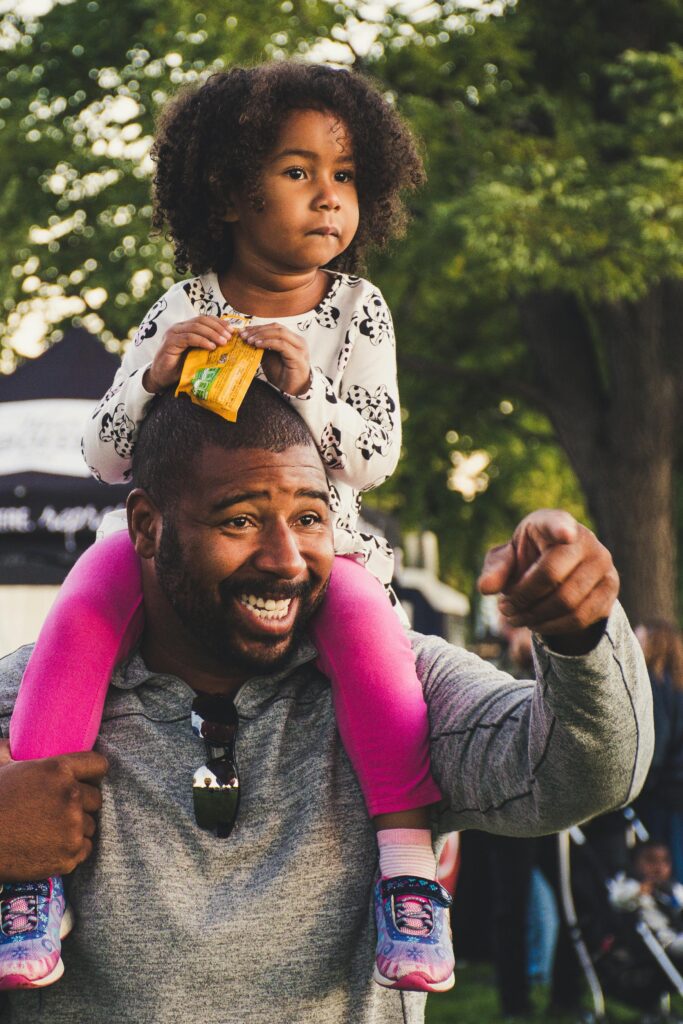 Right out of the gate, the resounding answer to this question is EVERYONE above the age of 18 needs an estate plan. And thus, Yes!! YOU NEED AN ESTATE PLAN. The only person who does not need an estate plan is immortal. And I would make an argument that even an immortal should have an estate plan as how else will they transfer their amassed wealth to their future self persona? Someday maybe I’ll write the Wealth Strategies of Vampires or There Can be Only One: The Highlander’s Approach to Long Term Planning.
Right out of the gate, the resounding answer to this question is EVERYONE above the age of 18 needs an estate plan. And thus, Yes!! YOU NEED AN ESTATE PLAN. The only person who does not need an estate plan is immortal. And I would make an argument that even an immortal should have an estate plan as how else will they transfer their amassed wealth to their future self persona? Someday maybe I’ll write the Wealth Strategies of Vampires or There Can be Only One: The Highlander’s Approach to Long Term Planning.
But why do you need an estate plan? Well, every adult, that is every person over the age of 18 has certain rights that cannot be delegated without legal documentation. And a basic estate plan has these documents, known as powers of attorney within them. Furthermore, because everyone can die, no matter what age, it is essential to have a will so that, at a bare minimum, your family has your last legal testimony as to where and how your property is to be distributed.
 At a deeper level, every adult needs an estate plan, not for themselves, but to ensure that their families and loved ones know your wishes and have the tools they need in case of your sudden death or incapacity. So without further ado let’s break this down a little more for you.
At a deeper level, every adult needs an estate plan, not for themselves, but to ensure that their families and loved ones know your wishes and have the tools they need in case of your sudden death or incapacity. So without further ado let’s break this down a little more for you.
What Does an Estate Plan Do for You?
First and foremost an estate plan puts your wishes in writing. These are wishes that can only be honored if they are in a formal, written, signed, witnessed and notarized document. The core documents of a complete plan that make up an estate plan and accomplish this are the following:

1. Financial Power of Attorney – This important document gives permission to someone to access your bank account, pay your bills, and make sure that when you are no longer in a coma that you have a home, car, and life to go back to that isn’t in financial shambles.
2. Medical Power of Attorney – This document gives permission for someone to make medical decisions for you if you are unconscious. This allows you to pick the person you know who will make the right call, who has talked to you about things, versus it just being left up to chance, and who is available. And what if you live far away from relatives? Or you do not agree with your relatives? Or you want your partner, who you are not married to, to be able to be there and make decisions? You need a medical power of attorney to ensure this.
3. Living Will – Sometimes also called a medical directive, this document ensures that people are aware that if you are in a permanent unconscious state, as in two doctors have said you are never going to wake up – that they know what you want. Maybe you want to be on life support forever? Maybe you don’t want any life support at all because of religious reasons. Your living will is where you put this information so that your medical power of attorney has the authority to make sure your wishes are carried out. Otherwise, everyone is left guessing and they will feel awful because of it.
4. Last Will and Testament – This document is your last testimony and it is required in most states to exist in a very specific form so that the Probate Court can review and distribute your personal property, bank accounts and real estate in the manner you state. In most states if you die without a will in place then the state automatically divides everything according to the Intestate statute. To die “intestate” means to die without a will, and the court is tasked with divvying everything up pursuant to the written law on the books which usually means it goes to your spouse, your children or parents. But again, if you have a partner and aren’t married to them, they would get nothing if you don’t have at least a will, if you don’t want your assets to go to your family but would prefer everything go to the church – then you are going to need a properly executed will.
5. Final Wishes (what happens to your body & funeral) – this is the power of attorney over your body and last rites/way you want to be honored. It designates someone in charge of making sure you are cremated, buried, composted and that your remains are dispersed per your wishes and that you get the funeral or celebration of life in the place of worship you choose, even if that is a fishing boat or a yoga center.
6. Living Revocable Trust – This longer and very formal document is used to ensure that your family does not have to go to probate court at all to distribute your assets after your death. It privatizes your entire estate, and ensures everything can be taken care of quickly, efficiently, with the least amount of costs, taxes, and public/state involvement. It also minimizes all opportunities for conflict in families where this could be a risk. Living Revocable Trusts are phenomenal tools, but they definitely require the involvement of an attorney and thoughtful planning on your part. An experienced estate planning attorney will thoughtfully guide you through the process of creating and funding a Living Revocable Trust, so no worries that it sounds complicated.
7. Guardianship Nominations – Last but not least, if you have young children your estate plan must include guardianship nominations and appointments. This ensures that your minor children do not become wards of the state if you die suddenly.
Who Should Have an Estate Plan?
 You should have an estate plan. I can’t emphasize this enough. Less than 25% of adults have any type of plan in place. They don’t even have a piece of paper with a list of their bank accounts. They may have a financial junk drawer on their phone or in their head, but there is nothing written down that can be referenced in case of emergency. And when you are dead or unconscious you cannot answer questions or give legal permissions so people can act on your behalf.
You should have an estate plan. I can’t emphasize this enough. Less than 25% of adults have any type of plan in place. They don’t even have a piece of paper with a list of their bank accounts. They may have a financial junk drawer on their phone or in their head, but there is nothing written down that can be referenced in case of emergency. And when you are dead or unconscious you cannot answer questions or give legal permissions so people can act on your behalf.
I am not saying this because I am an attorney who does this and its just another “should” on your list of things to do. I am saying you NEED an estate plan because all of the documents I mentioned above are EXTREMELY HELPFUL in case of emergency and sudden death. Because without them people are lost and confused, and your death could be very expensive, and leave a lot of people feeling angry or resentful instead of being able to mourn your passing.
I had a very good friend die of a blood stream infection suddenly. One day he was with us and healthy, and three days later he wasn’t. He left an unmarried partner, an ex-wife, a son, and a business in his wake – and no one knew where anything was. We couldn’t find a check book, we didn’t know where he banked at. There was a pile of personal belongings in his apartment with his partner, a van, and a whole bunch of questions and conflict. His ex-wife accused his partner of stealing all of his money to keep from her and his son. His spiritual community had to do a go-fund me so we could raise the money to pay for his death certificate and cremation. There was a probate lawsuit brought, and all I could do was write the other lawyer and judge to say that the situation was ridiculously hopeless. Everything we could find was transferred to his son, the unmarried partner couldn’t even keep his guitar. It was sad, ugly and painful – and didn’t need to be – if my friend had just had an estate plan.
 I share this example because it is personal and its just one version of the story I hear again and again from clients who are motivated to plan because they lost a loved one suddenly and had to deal with pain, costs, difficulty, heartbreak, and mountains of paperwork left in the wake of that loved ones death. They don’t want to leave the same uncomfortable and expensive scenario for the people they care about. So this is why you need an estate plan, its not about what you have, but about who you are leaving behind.
I share this example because it is personal and its just one version of the story I hear again and again from clients who are motivated to plan because they lost a loved one suddenly and had to deal with pain, costs, difficulty, heartbreak, and mountains of paperwork left in the wake of that loved ones death. They don’t want to leave the same uncomfortable and expensive scenario for the people they care about. So this is why you need an estate plan, its not about what you have, but about who you are leaving behind.
You Do NOT need to Be Wealthy to Have an Estate Plan
As a final public service announcement, I want to dispel the myth that only the wealthy or the old and retired with massive savings need to have an estate plan. This is just not true. Because again, everyone is mortal. We all die. We all have stuff. We all have someone who cares about us that will be stuck cleaning up our mess if we don’t do it while we are alive.

So every single adult person needs to have an estate plan with the minimum of: 1. Last Will & Testament 2. Financial Power of Attorney and 3. Medical Power of Attorney. A custom estate plan will have more involved, but depending on your situation an experienced estate planning attorney will walk you through everything you need to do. And a really good experienced estate planning attorney will make it super easy for you to create everything by simply filling out a survey and talking with them about your life, goals, family and confirming your list of assets.
But the list of assets, size of assets, amount of assets you have does not matter because the important part is that you have legally delegated to people you trust the responsibility of taking care of your finances, your medical decisions, and finally if you die, your body and your stuff. If you don’t make these decisions the court and the state has to for you, and the results are never what you would like.
So contact an experienced estate planning attorney today to get started on your estate plan. You need one. Remember, it is never too early to create an estate plan, but it can always be too late.



